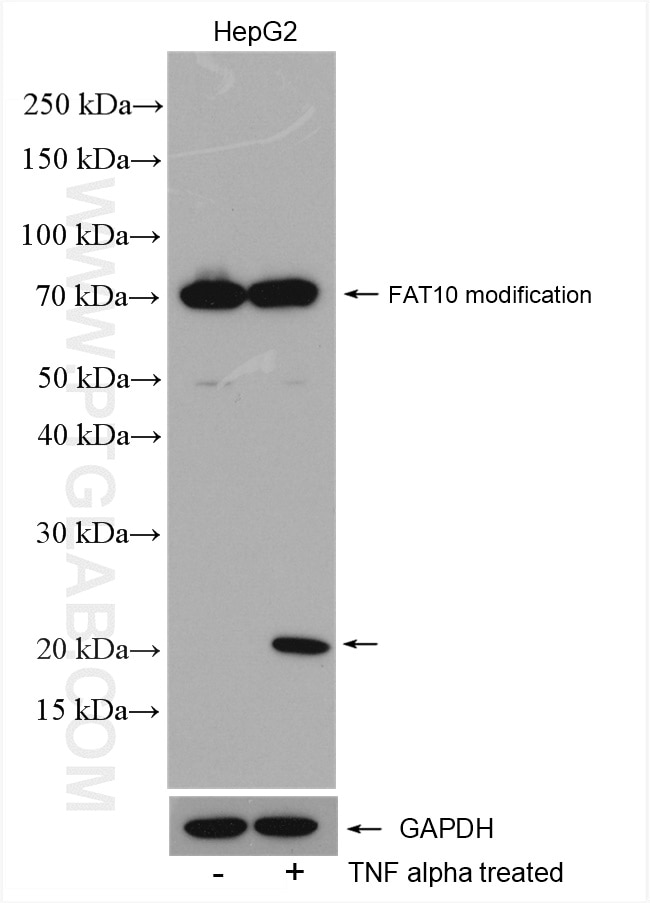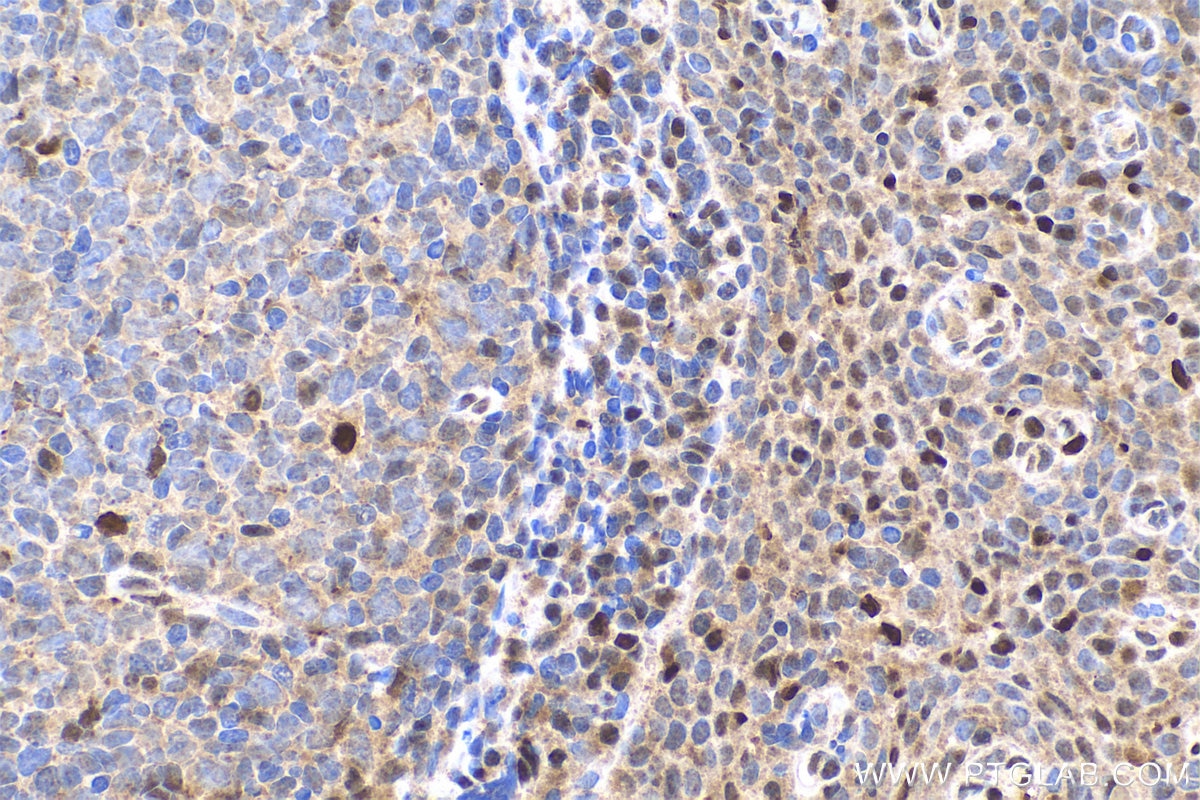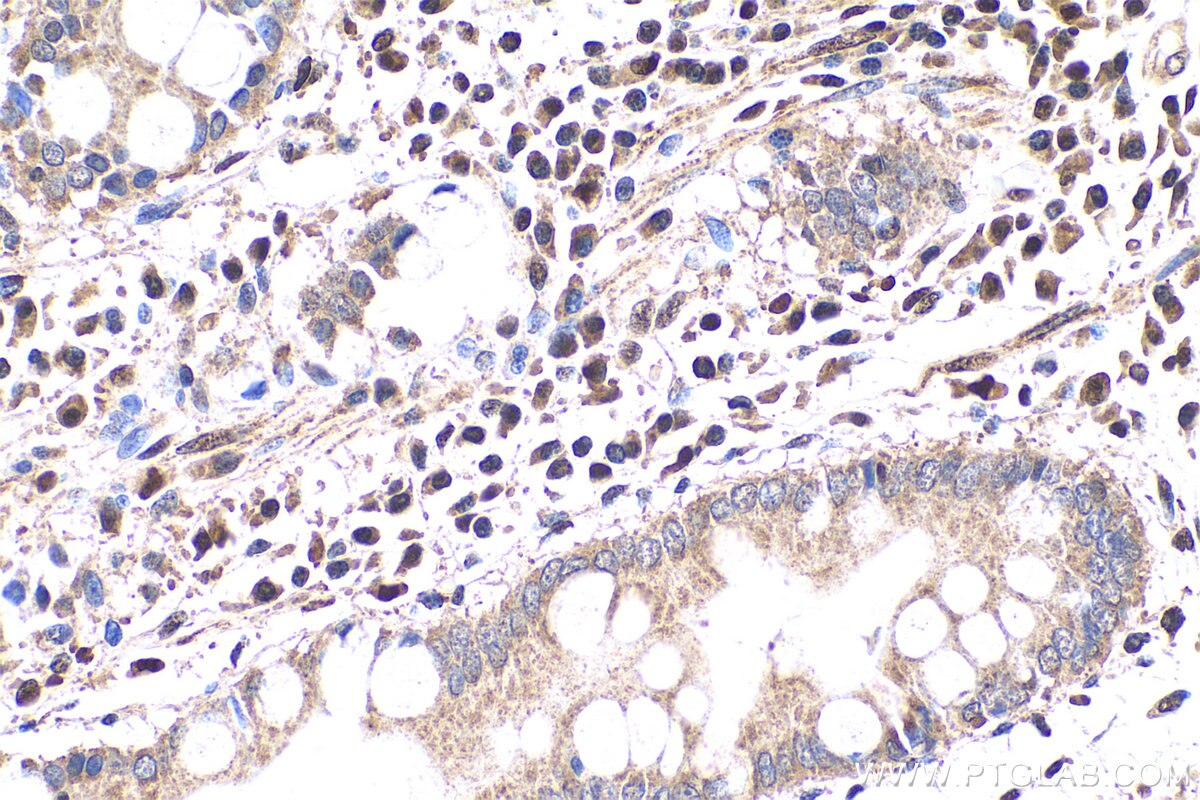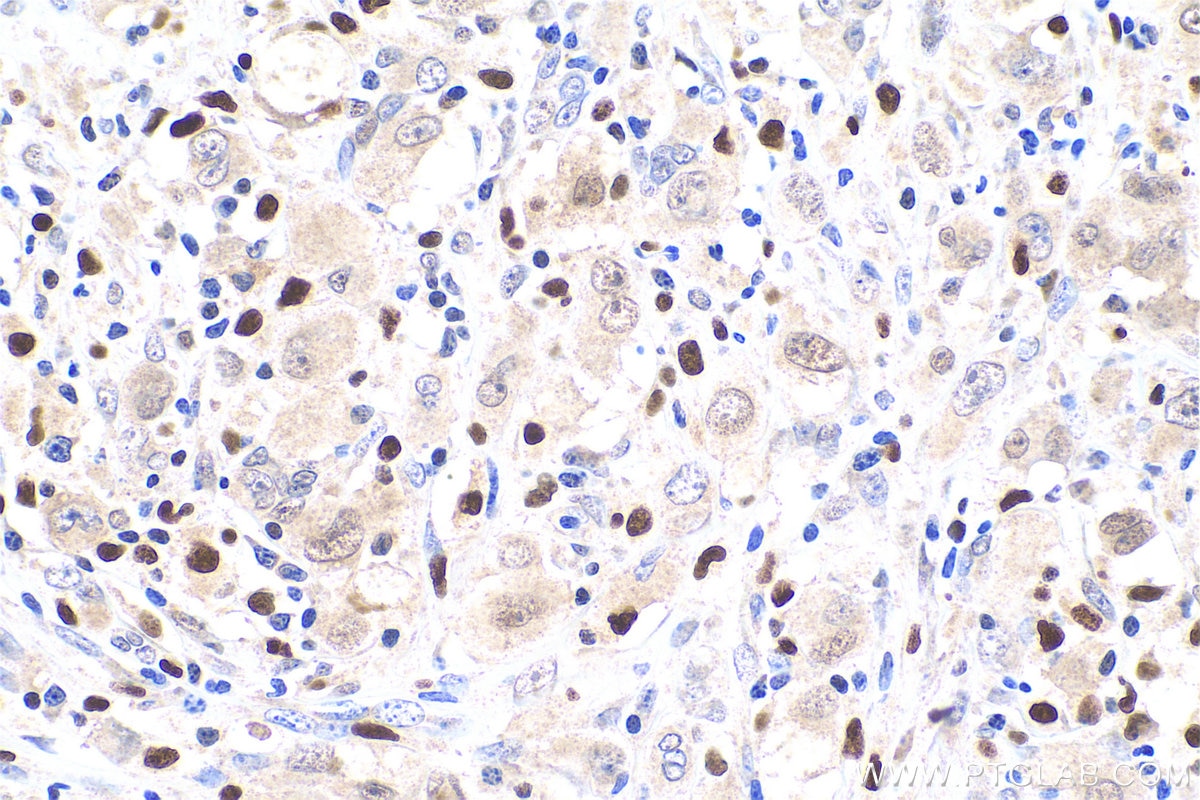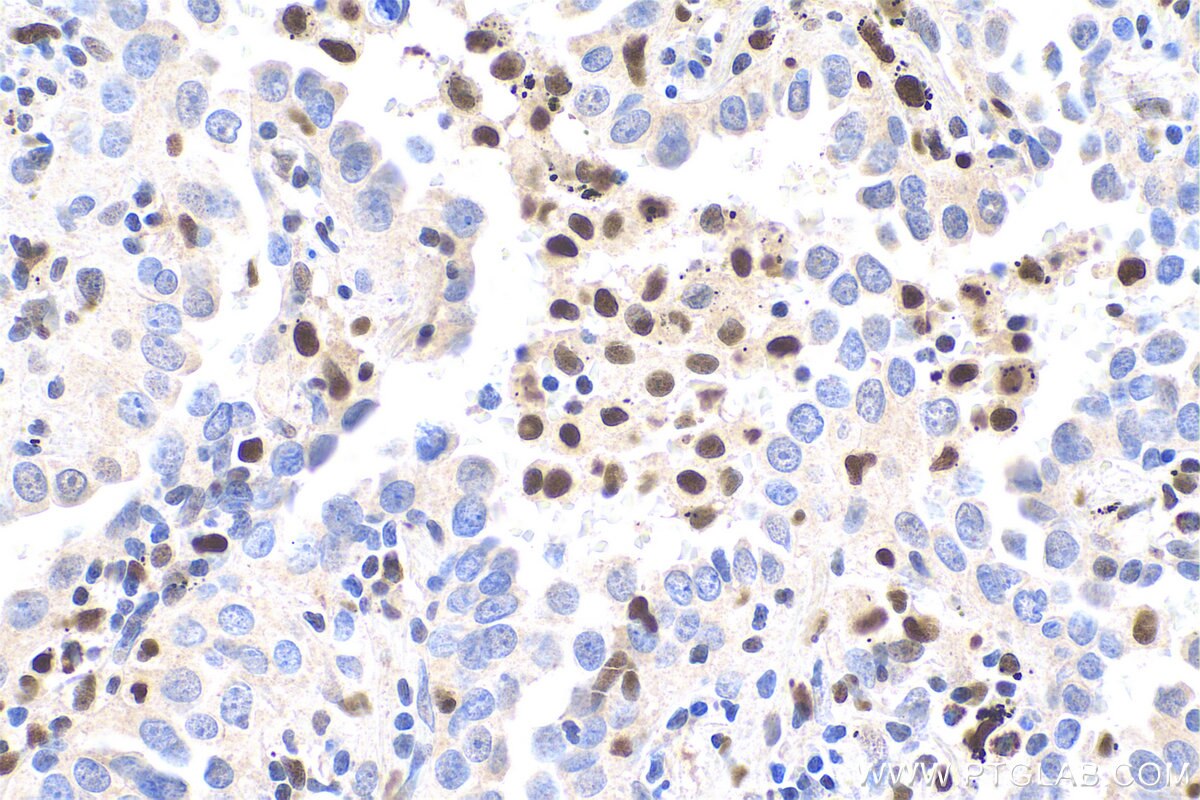Product Information
13003-2-PBS targets FAT10 in WB, IHC, Indirect ELISA applications and shows reactivity with human samples.
| Tested Reactivity | human |
| Host / Isotype | Rabbit / IgG |
| Class | Polyclonal |
| Type | Antibody |
| Immunogen | FAT10 fusion protein Ag3680 Predict reactive species |
| Full Name | ubiquitin D |
| Calculated Molecular Weight | 165 aa, 18 kDa |
| Observed Molecular Weight | 20 kDa, 70kDa |
| GenBank Accession Number | BC012472 |
| Gene Symbol | FAT10 |
| Gene ID (NCBI) | 10537 |
| Conjugate | Unconjugated |
| Form | Liquid |
| Purification Method | Antigen affinity purification |
| UNIPROT ID | O15205 |
| Storage Buffer | PBS only, pH 7.3. |
| Storage Conditions | Store at -80°C. |
Background Information
FAT10, also named UBD, contains two ubiquitin-like domains. It is a ubiquitin-like protein modifier that can be covalently attached to the target protein and subsequently leads to their degradation by the 26S proteasome, in a NUB1L-dependent manner. FAT10 also has important roles in cell mitosis, chromosome instability, apoptosis, and immune response. FAT10 mediates apoptosis in a caspase-dependent manner, especially in the renal epithelium and tubular cells during renal diseases such as polycystic kidney disease and Human immunodeficiency virus (HIV)-associated nephropathy (HIVAN). It promotes the expression of the proteasome subunit beta type-9 (PSMB9/LMP2). FAT10 regulates TNF-alpha-induced and LPS-mediated activation of the central mediator of innate immunity NF-kappa-B by promoting TNF-alpha-mediated proteasomal degradation of ubiquitinated-I-kappa-B-alpha. It may be involved in dendritic cell (DC) maturation, the process by which immature dendritic cells differentiate into fully competent antigen-presenting cells that initiate T-cell responses. FAT10 may be a marker for precancerous lesions and may promote cancer progression. This antibody is a rabbit polyclonal antibody raised against full-length FAT10 of human origin.
